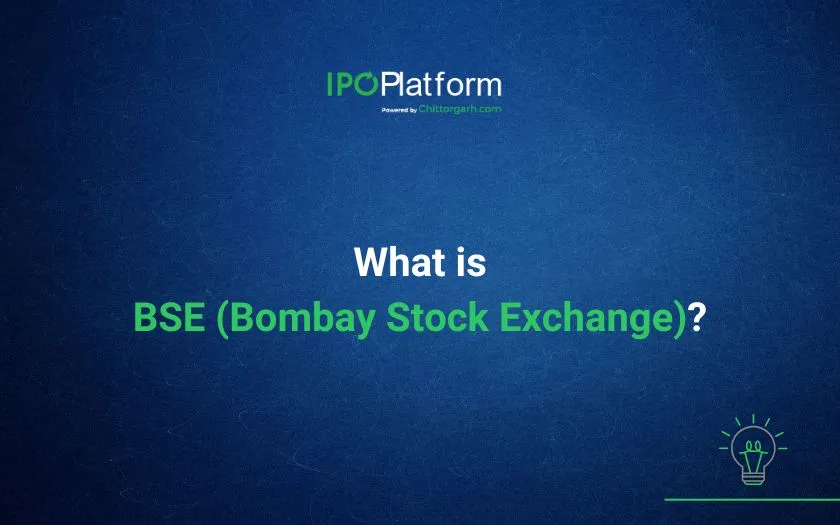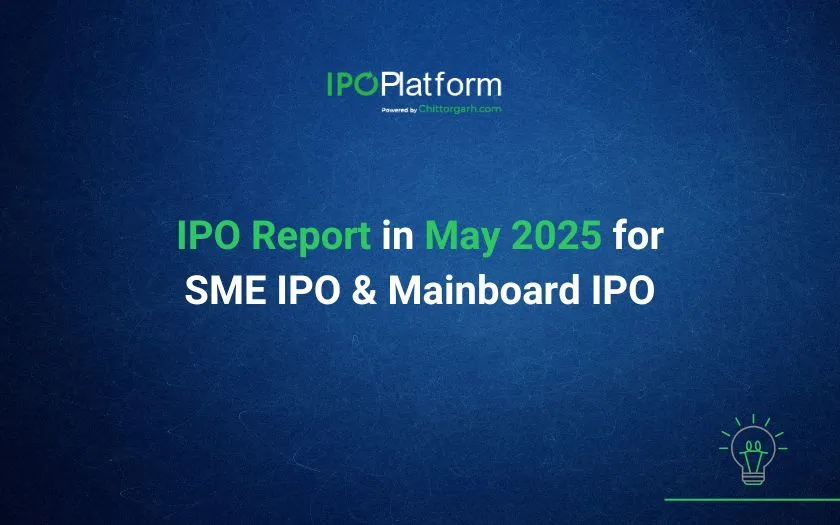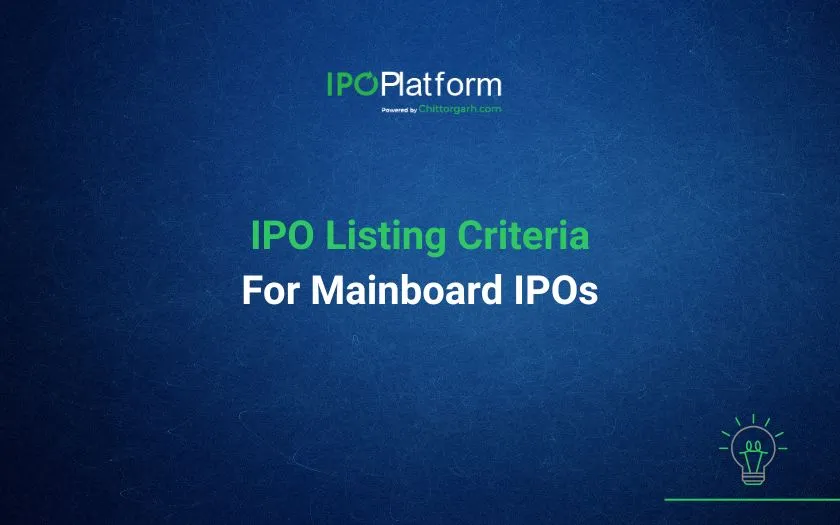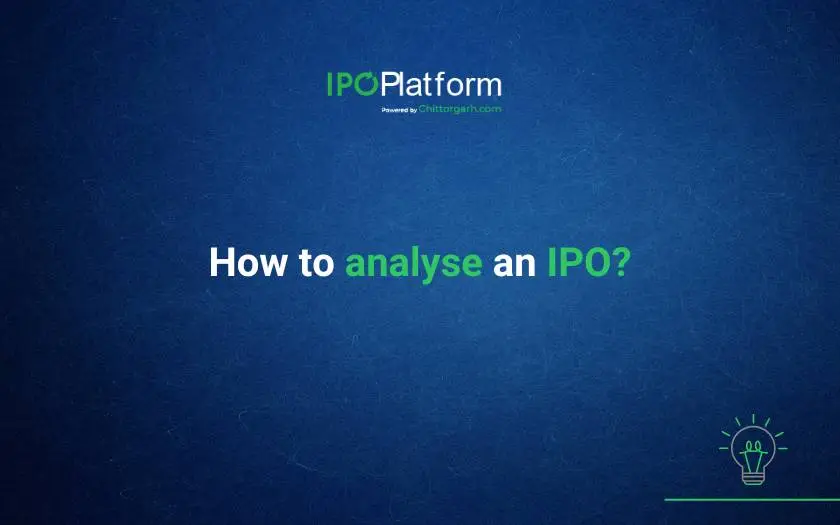BSE Stock Exchange of India- Role, Responsibility and

Listing on stock exchanges helps companies raise money from the public and gives investors a platform to invest. It also provides a safe and trusted system of trading. It provides a regulated marketplace for trading еquitiеs, derivatives, bonds, and mutual funds.
What is BSE (Bombay Stock Exchange)?
BSE is Asia’s oldest stock exchange, established in the year 1875, in Mumbai, India. It is a platform where shares of companies are listed, and people can buy or sell those shares. In 2012, BSE also launched a special platform BSE SME, for Small and Medium Enterprises (SME) to enable listing of shares and raise capital from public.
How does BSE works?
The Bombay Stock Trade (BSE) is a marketplace where companies list their shares, and investors buy or sell shares to earn returns or profit. All transactions on the BSE are done online through its electronic system called BOLT (BSE Online Trading). This system ensures fast, secure, and transparent trading.
Investors can place their buy or sell orders directly online through registered brokers. Some large institutional investors are allowed direct market access, which means they can place orders without going through a broker.
All trades on BSE follow the T+2 settlement cycle, which means the transaction is completed within two working days after the trade date. This ensures a timely and smooth transfer of shares and money between buyers and sellers.
The overall functioning of BSE is regulated and monitored by the Securities and Exchange Board of India (SEBI), which ensures that all transactions on the exchange are fair, transparent, and in compliance with established rules and regulations.

Explore Upcoming SME IPO in India
What are the timings of trading at BSE?
Trading on the BSE allows investors to buy and sell shares of listed companies in a transparent and regulated manner. The market operates through specific sessions to facilitate different types of trading.
The table below provides the official trading hours of BSE:
|
Sessions |
Timings |
|---|---|
|
Pre Open Session |
9:00 AM to 9:15 PM |
|
Regular Trading |
9:15 AM to 3:30 PM |
|
After-Closing |
3:40 AM to 4:00 PM |
Explore Upcoming Mainboard IPO in India
What are the Major Indices in BSE?
Indices are the tools that helps in measuring how a selective group of stock is performing, showing the overall trends of a market or a specific sector. These indices are created using a set of companies chosen based on factors like market size, industry, or theme, giving investors a clear idea of market performance.
The Bombay Stock Exchange (BSE) offers several indices that help investors understand how the stock market is performing. List of Anchor Investors in SME IPO
Some of the key indices include:
- BSE Sensex: This is the most well-known index of the BSE, made up of 30 top-performing traded companies in India. It is commonly used by investors, analysts, and the media to assess the conditions of the Indian economy.
- BSE 500: This index includes 500 companies from different sectors and gives a broader picture of the Indian stock market. It helps investors track overall market trends and performance.
- BSE Midcap: This index focuses on mid-sized companies, usually with a market capitalisation between ₹5,000 crores and ₹20,000 crores. It is a good option for investors looking for growth beyond large-cap firms.
- BSE Small cap: It includes companies with a market cap below ₹5,000 crores. This index represents smaller companies or SME. Investors looking for high-growth potential in emerging companies invest in this type.
- BSE Bankex (BSE Bank Index): This index consist of leading banks and financial service providers. It allows investors to evaluate how the banking and finance sector is performing.
- BSE Healthcare: Covering companies in the healthcare and pharmaceutical space. This index is used to monitor the performance of the healthcare sector on the BSE.
What are the Different investment options available on BSE?
BSE provides diverse investment options for all investor categories: Individual investors, QIBs, and Anchor Investors. Beyond share trading, it offers financial products to grow wealth, manage risks, and plan for the future.
Here are some of the main investment options available on BSE that investors can choose from based on their goals and risk appetite:
How to Invest in Initial Public Offer- Investing in IPO
- Equity Shares
Investors can buy and sell shares of companies listed on BSE and earn returns through price rise or dividends. - Mutual Funds:
BSE offers a platform called BSE STAR MF to invest in mutual funds which is managed by professionals. A Mutual fund diversifies the invested money across many stocks or sectors. - Exchange Traded Funds (ETFs):
ETFs are like mutual funds but traded like shares. Investors can invest in an ETF on BSE to track an index (like Sensex), gold, or other assets. - Bonds and Debentures:
Investors can also invest in bonds or debentures listed on BSE for steady interest income. - BSE SME:
BSE SME is a platform specially made for SME companies considering to raise funds through public and launching IPO. It offers early investment opportunities in growing businesses. - Derivatives:
BSE also has options and futures trading but this is for advanced traders who understand market risks well.
List of Merchant Bankers in India
What is Background and History of BSE? IPO Advisors for Listing
BSE has a fascinating history that dates back to the 19th century. During that time, a group of stock traders, led by businessman Premchand Roychand, would meet under a Banyan tree on what is now known as Dalal Street in Mumbai. As trading grew, there was a need for a proper and official place to do business. So, BSE was officially set up in 1875.
Mumbai, formerly known as Bombay, has evolved into the financial capital of India. Dalal street serves as the country’s most prominent hub for banking, investment, and financial services.
In 1995, the Bombay Stock Exchange embraced technology by introducing computer-based trading in collaboration with CMC Ltd., marking a significant step toward modernisation.
Dalal Street holds the same symbolic importance in India as Wall Street in the United States, representing the heart of the nation’s stock market and investment activities.
List of RTA in IPO
What is BSE SME?
BSE SME is a special platform started by the Bombay Stock Exchange (BSE) in 2012 to help Small and Medium Enterprises (SME) raise money from the public by listing their shares. It allows small companies to grow their business by getting funds from investors, just like big companies do on the mainboard platforms of NSE and BSE. Investors can invest early in the growing businesses through SME IPO.
Also Know about NSE
What are the benefits of Listing shares on BSE SME for SME company?
Listing on BSE SME offers several benefits for small and medium enterprises. It provides access to much-needed capital, helping businesses fund their growth and expansion plans. At the same time, it enhances the company’s visibility and credibility in the market, building greater trust among investors, customers, and stakeholders.
- Easy Access to Capital:
-
BSE SME offers small and medium businesses a simple way to raise capital through equity, helping them grow and expand.
-
- Improve visibility and Reputation:
- Listing boosts, the company’s image, increases trust among investors and customers, and may lead to better share demand and higher valuation.
- Support for Business Growth:
- Equity funding helps companies expand, go for merger and acquisitions thus being cost effective and tax efficient mode.
- Liquidity for Shareholders:
- Shareholders can buy or sell shares more easily after listing, giving them a clear exit option when needed.
- Exit route for Venture Capital Investors:
- This platform offers venture capital and private equity funds a proper exit path, reducing their lock-in period and encouraging more investment in SME.
- Better risk management:
- Capital markets help distribute financial risk wisely by directing funds to businesses with higher potential returns.
What are the different eligibility criteria for listing on BSE and BSE SME?
- BSE has two listing platforms – Mainboard and SME – with different rules for companies.
- Mainboard is for big, established companies with higher net worth, good profit records, and larger post-issue capital.
- SME platform is for small and medium companies with lower net worth, smaller post-issue capital, and easier listing rules.
- This dual system helps both growing businesses and large companies raise funds as per their stage of growth.
- Investors also get options to choose between fast-growing SMEs and stable big companies when applying for IPOs.
- IPO cost or IPO expenses is higher for Mainboard BSE due to stricter compliance, larger issue size, and wider marketing while in BSE SME IPOs are comparatively cost-effective with relaxed norms and lower regulatory fees.
BSE SME IPO Eligibility Criteria:
- Post issue paid up capital should not be more than Rs 25 Crore.
- Track record of at least 3 years is required, or the project must be appraised and funded by institutions like NABARD, SIDBI, or banks, with at least 1 year of audited operations.
- Net tangible assets should be minimum RS. 3 Crore in the last financial year.
- Net worth should be at least Rs. 1 Crore in each of the last 2 financial years.
- Operating profit of Rs. 1 Crore is required in at least 2 out of the last 3 financial years, including the year before applying. Check IPO Eligibility on BSE SME
How a company gets listed on BSE?
Listing on BSE means that a company’s shares are officially added to the Bombay Stock Exchange and can be bought and sold by investors in the secondary market. For listing purposes, the companies must meet IPO Eligibility criteria set by SEBI and respective stock exchanges.
After listing, the shares are available for trading enabling investors to buy or sell those shares in the secondary market.
Key Points:
- Once a company is listed, it becomes publicly traded.
- Trading refers to the process where buyers and sellers exchange shares at market prices.
- Companies listed on BSE, including SMEs through BSE SME, get more visibility and access to capital.
- You can find a list of SME companies listed on BSE on ipoplatform.com
- To list under BSE SME, a company must meet specific listing criteria, like minimum net worth, track record, and compliance requirements.
Conclusion
The Bombay Stock Exchange (BSE) plays a vital role in India's financial system by offering companies a trusted platform to raise capital and giving investors various ways to grow their money. With a rich history and strong regulatory framework under SEBI, BSE has evolved into a modern and transparent exchange that supports both large corporations and Small and Medium Enterprises (SMEs) through its Mainboard and SME platforms.
Whether it’s investing in shares, mutual funds, bonds, or derivatives, BSE provides secure and accessible options for all kinds of investors. Its digital trading system, wide range of indices, and flexible listing criteria make it one of the most preferred stock exchanges in the country. By supporting businesses of all sizes and offering a transparent marketplace, BSE continues to contribute to the growth of the Indian economy and the success of countless investors and entrepreneurs.
FAQs
When was BSE Established?
The Bombay Stock Exchange (BSE), established in 1875, holds the distinction of being Asia’s first stock exchange. Since its inception, it has played a crucial role in shaping and developing India’s capital markets. BSE provides a trusted and transparent platform for trading in equities, bonds, mutual funds, and derivatives. Over the years, it has gained global recognition for its efficiency, reliability, and investor-friendly practices. Today, BSE continues to stand as one of the most respected stock exchanges in the world.
What is BSE?
BSE is one of the stock exchange platform in India where people can buy and sell shares and other financial instruments. NSE SME and BSE SME enables listing of SME companies in India. Mainboard Listings take place in both NSE and BSE.
Is BSE a Government Company?
No, BSE is not a Government company. It is privately owned and operated stock exchange though it is recognized and regulated by the Government of India. Explore SME IPO Merchant Bankers in India
What is BSE and what does it do?
BSE (Bombay Stock Exchange) is the oldest stock exchange in India, where companies list their shares so that investors can buy and sell them in the securities market. It plays a vital role in the Indian financial system by providing a transparent and regulated platform for trading. Apart from equity trading, BSE also offers a wide range of services such as derivatives trading, bond market, mutual funds, ETFs, and currency derivatives. Over the years, it has become a trusted exchange for both companies and investors, helping businesses raise capital and giving investors opportunities to grow their wealth. Detailed SME IPO Process
Who is the CEO of the BSE?
As of now, the CEO of BSE is Sundararaman Ramamurthy.
Why is BSE good for beginners?
BSE is considered good for beginners because it offers simple and user-friendly platforms to understand and start trading in the stock market. It also provides many tools, resources, and learning support that help new investors make informed decisions. Since BSE is one of the oldest and most trusted stock exchanges in India, it gives beginners a sense of safety and reliability while investing.
List of Upcoming SME IPO on BSE SME
Who can trade shares on BSE?
Anyone who has a PAN card and a Demat account is eligible to trade in shares listed on the BSE (Bombay Stock Exchange). It covers a wide range of investors such as individuals, financial institutions, mutual funds, banks, and even foreign investors like FIIs and FPIs. Having a Demat account is important because all shares today are issued and traded only in electronic form, and a PAN card is required to comply with SEBI regulations.






0 Comments